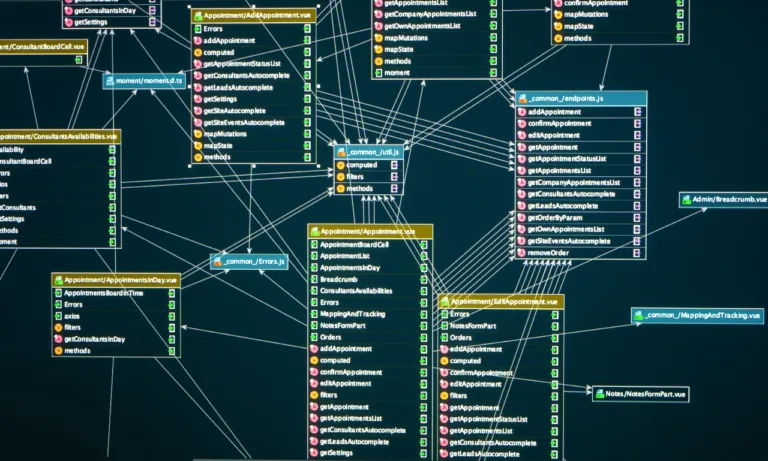Phone:
(+65)8319-0742
The educational paradigm continues to evolve, embracing innovative strategies that resonate with contemporary learners. Among these emerging methodologies, Task-Based Learning Support stands at the forefront of transforming how we approach language acquisition in the classroom. By prioritizing real-world tasks over traditional memorization and grammar exercises, this approach bolsters student engagement, motivating young minds to embrace the intricacies of language through interactive and meaningful experiences.
Emphasizing communication and practical application, Task-Based Learning Support not only enriches the educational journey but also prepares students for the linguistic demands of the global community. The application of Task-Based Learning methods can significantly enhance education, shaping students into adept communicators equipped with the skills vital for success in their academic and personal lives.
Key Takeaways
- Task-Based Learning places authentic tasks at the heart of the educational experience, fostering student engagement.
- Immersive group activities within Task-Based Learning enhance language acquisition and communicative competence.
- Real-world relevance of tasks in TBL methods captivates and motivates students.
- Task-Based Learning Support in the classroom translates to improved job prospects for language teachers.
- Effective TBL strategies create a dynamic environment that facilitates interaction and practical language use.
Understanding Task-Based Learning Support in Modern Education
The shift towards Task-Based Learning evolution has triggered a revolution in how education is delivered. With its emphasis on interactive learning tasks, this method aligns perfectly with the needs and preferences of the digital age learner. It marks a transition from textbook-centric instruction to a more holistic form of effective teaching methods, cementing its place as a fundamental strategy in the arena of second language learning.
The Evolution of Teaching Methods: Embracing Task-Based Learning
Educational paradigms have progressed substantially, with Task-Based Learning epitomizing the transformation. Moving beyond rote learning and passive reception, this approach fosters an engaging environment where students partake in activities that are not only educational but also intrinsically motivating. By prioritizing task completion and student engagement, educators are exploring fresh avenues to facilitate learning that resonates with students’ real-world experiences.
Why Task-Based Learning Resonates with Today's Learners
Modern learners demand relevance and context in their educational journey, a need that Task-Based Learning addresses with aplomb. Engaging in tasks that reflect their personal experiences leads to a natural, unforced interaction with the new language, enhancing their understanding and retention. The method’s authenticity means learning feels less like a classroom exercise and more like a meaningful aspect of studentsâ daily lives.
Components of Effective Task-Based Learning Activities
An effective Task-Based Learning activity is more than just a series of steps; it’s a scaffolding process that guides students from initial concept to task completion and reflection. Let’s dissect the key components of an effective Task-Based Learning session:
| Phase | Purpose | Key Characteristics |
|---|---|---|
| Pre-task Introduction | To prepare students and set context | Introduces the topic, activates prior knowledge |
| Main Task Execution | To engage in language through practice | Execution of the task, often collaboratively, promotes communication |
| Post-task Review | To reflect and solidify learning | Discussion of outcomes, errors, and learning points |
The tripartite framework of pre-task, main task, and post-task is engineered to navigate students through interactive learning tasks, enhancing their ability to use the second language effectively. By engaging in tasks that mirror real scenarios, students not only learn a second language but also develop the soft skills necessary for today’s globalized society. In doing so, educators are equipping students with the tools needed for success in an ever-evolving world.
Designing Task-Based Learning Activities for Language Acquisition
Incorporating Task-Based Learning design into classroom activities fosters an environment where language acquisition occurs dynamically, as learners engage in real-world tasks. The crux of this educational strategy lies in the creation of scenarios that students are likely to encounter outside the classroom, enabling them to apply their language skills in practical, meaningful situations.
Such tasks can range from collaborative projects to individual assignments, all designed to challenge students and propel their understanding of the language in use. Here are some effective examples of Task-Based Learning activities that align with this approach:
- Developing a marketing campaign for a new product
- Planning an itinerary for a travel-based project
- Simulating a town hall meeting to discuss local issues
- Creating a documentary on a culturally significant topic
After completion, strategic error correction sessions aid in solidifying the learned language structures without discouraging the learners’ communicative efforts. This balance is key to the success of Task-Based Learning, as it values fluency and confidence alongside grammatical precision. Such classroom experiences not only enhance language skills but also equip students with the tools they need to navigate linguistically diverse environments.
It is crucial for educators to meticulously consider the objectives of each task to ensure they are contributing to the overall language learning goals. The integration of these elements fosters a holistic approach where learners can thrive, absorb, and use the new language as they would in real-life interactions. Task-Based Learning activities, when well-designed, merge the theoretical aspects of language with the unpredictable, vibrant nature of human communication.
Task-Based Learning Support: A Holistic Approach to Developing Communicative Competence

Task-Based Learning (TBL) stands at the forefront of educational innovation, championing a new frontier for nurturing communicative competence in learners worldwide. This pedagogical strategy orchestrates a symphony of group learning experiences, leveraging the social aspects of education to construct a more engaging and effective learning environment.
Cultivating Group Collaboration through Task-Based Learning
At the heart of TBL’s success is its emphasis on group collaboration, fostering a supportive learning community where students are encouraged to share insights, tackle challenges, and collectively navigate the path to linguistic proficiency. The fabric of group learning is strengthened by the implementation of Task-Based Learning applications, each designed to promote active participation, critical thinking, and the organic use of language amidst peers.
Real-World Applications: Tailoring Tasks to Student Interests
Recognizing the diverse tapestry of student passions, TBL eschews a one-size-fits-all approach in favor of student interest-driven tasks. Educators adeptly tailor activities, such as devising travel itineraries or creating multimedia content, to align with individual interests, thereby catapulting student motivation to new heights. These real-world applications cement learners’ language skills in meaningful, memorable ways, resulting in tangible progress and deepened engagement.
| Activity Type | Skills Developed | Student Interest Example |
|---|---|---|
| Problem-Solving | Critical Thinking, Teamwork | Escape Room Challenge |
| Project Design | Creativity, Planning | Build a Sustainable Garden |
| Role-Play Simulations | Spoken Fluency, Adaptability | Travel Agent Booking |
| Debate Clubs | Persuasive Speaking, Research | Renewable Energy Perspectives |
| Content Creation | Media Literacy, Digital Skills | Creating a Vlog Series |
Implementing Task-Based Learning in the Classroom: Strategies and Examples

Perfecting classroom implementation of Task-Based Learning (TBL) hinges not only on the actual task at hand but equally on the approach and framework educators utilize. This involves a multi-faceted blend of Task-Based Learning strategies that significantly propel educational engagement.
A core aspect of bringing TBL to life within the educational environment is to start with compelling warm-up activities that help to establish clear objectives. It’s during this stage that teachers can captivate students’ attention and gear them up for the active learning ahead.
The warmth of educational engagement within language teaching is further fanned by teachers who explain tasks with clarity and provide practical examples. This foundational step is not just important, it is an imperative stepping stone toward educational success. To complement this, consistent monitoring and support during task execution is vital, ensuring that students remain on track and are able to overcome any challenges encountered.
- Fostering a sense of community through peer feedback
- Encouraging critical thinking with self-reflection after tasks
These strategies are not restricted to the confines of a physical classroom. Task-Based Learning transcends physical barriers, seamlessly adapting to online platforms, ensuring that remote learners are not left behind and continue to experience an engaging method of language teaching. Below is an example of a lesson plan that effectively integrates music and storytelling to enrich the language learning journey.
| Activity | Objective | Task Description | Materials Needed |
|---|---|---|---|
| Music Integration | To improve listening skills and vocabulary | Students listen to a song in the target language and fill in the missing words | Audio player, lyrics with blanks |
| Storytelling | To enhance speaking and narrative abilities | Students create and narrate their own stories based on thematic images | Set of images, storyboards |
Through these thought-out educational strategies, TBL truly brings language teaching to vibrant life, crafting a unison of engagement and learning that resonates with students across various learning settings.
The Role of Interactive Learning Tasks in Promoting Student Engagement

Understanding the significance of interactive learning tasks in the educational sphere is paramount as these activities are pivotal to fostering student engagement. When students actively participate in tasks that challenge their communicative and critical thinking abilities, the classroom becomes a dynamic environment ripe for learning and growth. Incorporating innovative task ideas into curricula has been identified as a key strategy in enhancing interaction and involvement among learners.
Case Studies: Impact of Interactive Tasks on Student Involvement
Case studies of Task-Based Learning have consistently indicated that when students are immersed in interactive learning tasks, they exhibit notable improvements in communication skills, self-assurance, and motivation. These tasks, which often require problem-solving in real-time, encourage learners to engage more deeply with the material and with each other, leading to a more collaborative and supportive learning environment.
Innovative Task Ideas to Foster Learner Participation
In search of innovative task ideas, educators have developed numerous techniques to leverage the power of interactivity within the classroom. These ideas go beyond traditional lectures and written assignmentsâinstead, they embrace hands-on activities, digital storytelling, and interactive simulations that require students to apply their knowledge in practical settings.
| Task Type | Description | Benefits |
|---|---|---|
| Role-Playing Games | Students embody characters in scenarios relevant to the learning objectives. | Encourages empathy, teamwork, and problem-solving. |
| Digital Storytelling | Crafting and sharing narratives using digital media tools. | Enhances digital literacy, creativity, and narrative skills. |
| Simulation Exercises | An authentic context where students must navigate and solve challenges. | Develops critical thinking and decision-making skills. |
| Debate Forums | Structured opportunities for students to discuss and defend various viewpoints. | Promotes active listening, articulation, and persuasive communication. |
These task formats not only reinforce the material but also act as a bridge between classroom learning and real-world application, solidifying the connection between knowledge and practice. By using interactive learning tasks, educators empower students to take charge of their learning experiences, leading to enhanced student engagement and a robust educational journey.
Task-Based Learning in ESL: A Crucial Tool for Second Language Learning
Within the ESL classroom, the application of Task-Based Learning Support has revolutionized the way educators approach second language learning. Moving away from conventional grammar-focused instruction, this method allows learners to dive into hands-on, meaningful experiences that significantly contribute to their fluency development. By engaging students with tasks that necessitate active language utilization, ESL teachers create an immersive learning environment where communication and cultural nuances become paramount.
The philosophy behind Task-Based Learning lies in providing opportunities for students to practice English through real-life scenarios that cover essential language domains: listening, speaking, reading, and writing. Each task is carefully curated to incorporate elements of storytelling, creative media projects, and group-based analytical challengesâtechniques designed to cultivate a vibrant, student-centered learning atmosphere.
To illustrate the effectiveness of Task-Based Learning in ESL education, consider the following table that highlights varied, practical tasks aimed at enhancing the four critical language skills.
| Language Skill | Task-Based Activity | Expected Outcome |
|---|---|---|
| Listening | Interpreting news broadcasts and podcasts | Improved understanding of spoken English and comprehension of different accents and speaking speeds |
| Speaking | Participating in debates and role plays | Enhanced verbal expression and public speaking abilities |
| Reading | Analyzing articles and literary excerpts | Increased reading fluency and text analysis skills |
| Writing | Composing essays, journals, and digital content | Development of coherent writing styles and argument structures |
Task-Based Learning not only aims at language proficiency but also equips ESL learners with the confidence to navigate the intricacies of English in various contexts. Education is truly enriched when students actively engage with the material, transforming second language learning from a daunting task into a journey of exciting exploration and discovery.
Measuring the Impact of Task-Based Learning on Fluency Development
The effectiveness of Task-Based Learning (TBL) in fostering fluency development is a significant interest for educators dedicated to improving language skills. With the application of TBL, students engage in tasks that promote active use of language, leading to notable advancements in linguistic ability. The methodologies used to assess these advancements are crucial in understanding the impact of TBL on a learner’s journey to fluency.
Assessing Language Skills Post-Task Activities
Evaluating the progress of students’ language skills following TBL activities requires comprehensive language skills assessment tools. These tools help educators in identifying areas of strength and the need for further improvement. Modern assessments look beyond traditional testing and embrace dynamic techniques that mirror real-world communication scenarios. The authentic and collaborative nature of these tasks offers students the opportunity to demonstrate practical application of language in a supportive environment.
Feedback and Error Correction: Balancing Accuracy with Fluency
Constructive feedback and effective error correction play a pivotal role in the TBL framework. While the priority is fluency development, it is important to strike a balance with linguistic accuracy. Educators approach error correction with sensitivity, correcting mistakes in a manner that boosts the learner’s confidence while refining their command of the language.
| Assessment Category | Fluency Development Focus | Tasks Utilized |
|---|---|---|
| Listening | Spontaneous comprehension | Audio-based problem-solving |
| Speaking | Active communication | Group discussions, presentations |
| Reading | Efficient processing of written material | Analyzing texts, summarization exercises |
| Writing | Cohesive and clear expression | Essay drafting, peer editing |
Analyzing the Task-Based Learning impact involves an intricate blend of observation and careful scrutiny of student interactions with the language. These insights enable educators to refine their approaches and aid students in reaching their full communicative potential.
Conclusion
Task-Based Learning Support methodically transforms the traditional landscape of language teaching and molds it to meet the nuanced requirements of today’s learners. It ushers in a framework that is inherently learner-centered and competency-oriented, carving a niche for itself as a fulcrum of effective language teaching. The focus is squarely on a learner’s journey through interaction with challenging, yet authentic tasks, empowering them with the fluency and linguistic dexterity required for the real world.
The benefits of this progressive educational strategy extend beyond the confines of the classroom. Task-Based Learning Support has consistently demonstrated its capacity to amplify educational outcomes by nurturing an environment ripe for student engagement. This innovative approach underscores the importance of communicative competence, as it fosters an atmosphere where students evolve from mere spectators to impactful communicators and problem solvers in their second language.
In essence, Task-Based Learning epitomizes the advancement of current educational ideologies, championing practices that are engaging, fulfilling, and eminently practical. It is a celebration of student potential and a powerful testament to the dynamic evolution ongoing within effective language teaching – an evolution that promises to equip learners not just for tests and grades, but for a lifetime of meaningful interaction and cultural exchange in our ever-diversifying global society.
FAQ
What is Task-Based Learning Support and how does it enhance education?
Task-Based Learning Support is an educational approach that focuses on engaging students in meaningful, real-world tasks to enhance their language acquisition and overall learning. It helps increase student engagement by having them complete tasks that are relevant to their interests and future life challenges, thus making education more effective and applicable.
How has Task-Based Learning evolved teaching methods?
Task-Based Learning represents a shift from traditional lecture-based instruction to learning through doing. It places the emphasis on interactive tasks, pushing students to use and improve their language skills in practical, communicative contexts, which reflects a more modern and engaging approach to education.
Why does Task-Based Learning resonate with today’s learners?
Today’s learners thrive on interaction, engagement, and practical application of skills. Task-Based Learning aligns perfectly with these needs by providing authentic, real-world tasks that make learning more meaningful and motivating for students.
What are the key components of effective Task-Based Learning activities?
Effective Task-Based Learning activities should include clear, real-world goals, a focus on fluency and communicative competence, opportunities for collaboration, strategic error correction, and a balance of challenge and support to maximize engagement and effectiveness in language learning.
How can educators design Task-Based Learning activities for effective language acquisition?
Educators can design these activities by identifying tasks that mirror real-life situations, ensuring that the tasks are engaging, presenting clear objectives, providing adequate support, and integrating a review phase to reflect on language use and promote learning.
How does Task-Based Learning support the development of communicative competence?
Task-Based Learning supports communicative competence by providing students with opportunities to use the target language in a meaningful context, collaborate with peers, receive feedback, and engage in tasks that require genuine communication, which helps improve their ability to communicate effectively.
What are some examples of real-world applications in Task-Based Learning?
Examples include tasks such as planning a community event, debating current issues, creating a travel itinerary, or producing a video blog. These activities require students to apply language skills in practical scenarios, making learning more relevant and engaging.
What strategies can be used to implement Task-Based Learning in the classroom?
Strategies for implementation include starting with a motivational warm-up, providing clear task instructions and examples, offering support during the task, facilitating peer feedback, and conducting post-task reflection and error correction, all of which enhance the learning experience.
How do interactive learning tasks promote student engagement?
Interactive learning tasks require active participation, collaboration, and communication, which foster engagement by involving students in hands-on, meaningful activities that demand their input and creative problem-solving skills.
Can you provide case studies showing the impact of interactive tasks on student involvement?
While specific case studies aren’t listed here, there is substantial research indicating that interactive tasks result in greater student involvement, leading to increased motivation, better language retention, and higher levels of engagement.
What innovative task ideas can help foster learner participation?
Innovative task ideas include simulations, role-playing, interactive games, social media projects, and community-based activities. These tasks can motivate learners to actively participate and use the target language creatively.
Why is Task-Based Learning crucial in ESL education?
Task-Based Learning is crucial in ESL education as it addresses the immediate language needs of learners by providing a context for real communicative practice, which is essential for developing language fluency, and it reflects how language is used in everyday situations outside the classroom.
How is the impact of Task-Based Learning on fluency development measured?
The impact is measured by assessing language use during and after tasks with a focus on fluency, using tools such as rubrics, observational checklists, and self-assessments to evaluate progress in language skills and communicative abilities.
How do feedback and error correction contribute to achieving a balance between accuracy and fluency in Task-Based Learning?
Feedback and error correction, when done constructively and strategically after tasks, help learners to focus on accuracy without disrupting their fluency during communication. This ensures that students can communicate effectively while still working towards correct language use.

















